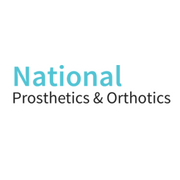How to Address a BRCA1 or BRCA2 Mutation

A BRCA mutation is a gene mutation that increases a person’s risk of developing breast cancer. While testing positive for this type of mutation can bring anxiety, it also allows you to take preventative measures to protect your health, such as getting a double mastectomy. Here are three important ways to address a BRCA1 or BRCA2 mutation.
3 Ways to Address a BRCA1 or BRCA2 Mutation
1. Create an Early Detection Plan
The earlier breast cancer is detected, the easier it is to treat. That’s why people with BRCA mutations should work with their doctors to increase the chance of early detection.
For example, you may start scheduling breast cancer screenings on a more regular basis. You may also agree to perform self-exams a few times a month, so you can report any changes to your doctor as soon as possible.
2. Eat Right & Exercise
 Maintaining a healthy weight can lower your risk of breast cancer. Make sure your diet is rich in vegetables, fruits, and whole grains, and limit foods that are high in salt, added sugars, saturated fats, trans fats, and cholesterol. In addition, try to get 150 minutes of moderate-intensity aerobic activity (such as walking) or 75 minutes of vigorous-intensity aerobic activity (such as running) every week.
Maintaining a healthy weight can lower your risk of breast cancer. Make sure your diet is rich in vegetables, fruits, and whole grains, and limit foods that are high in salt, added sugars, saturated fats, trans fats, and cholesterol. In addition, try to get 150 minutes of moderate-intensity aerobic activity (such as walking) or 75 minutes of vigorous-intensity aerobic activity (such as running) every week.
3. Get a Double Mastectomy
A double mastectomy is a preventative surgery that removes both breasts. When you have a BRCA1 or BRCA2 mutation, the surgery lowers your risk of breast cancer by about 90 to 95 percent. Despite the procedure’s effectiveness, some women avoid it because it seems extreme.
That’s why it’s important to discuss any concerns you have about the surgery with your doctor. They can recommend ways to ease your anxiety about life after the procedure, such as breast reconstruction surgery or a breast prosthesis.
If you’re considering a double mastectomy, the compassionate team at National Prosthetics & Orthotics is here for you. Based in Cold Spring, KY, they provide high-quality, natural-looking breast prosthetics to help restore your comfort. To learn more about how they can help you, visit them online or call (859) 442-0400.
About the Business
Have a question? Ask the experts!
Send your question

